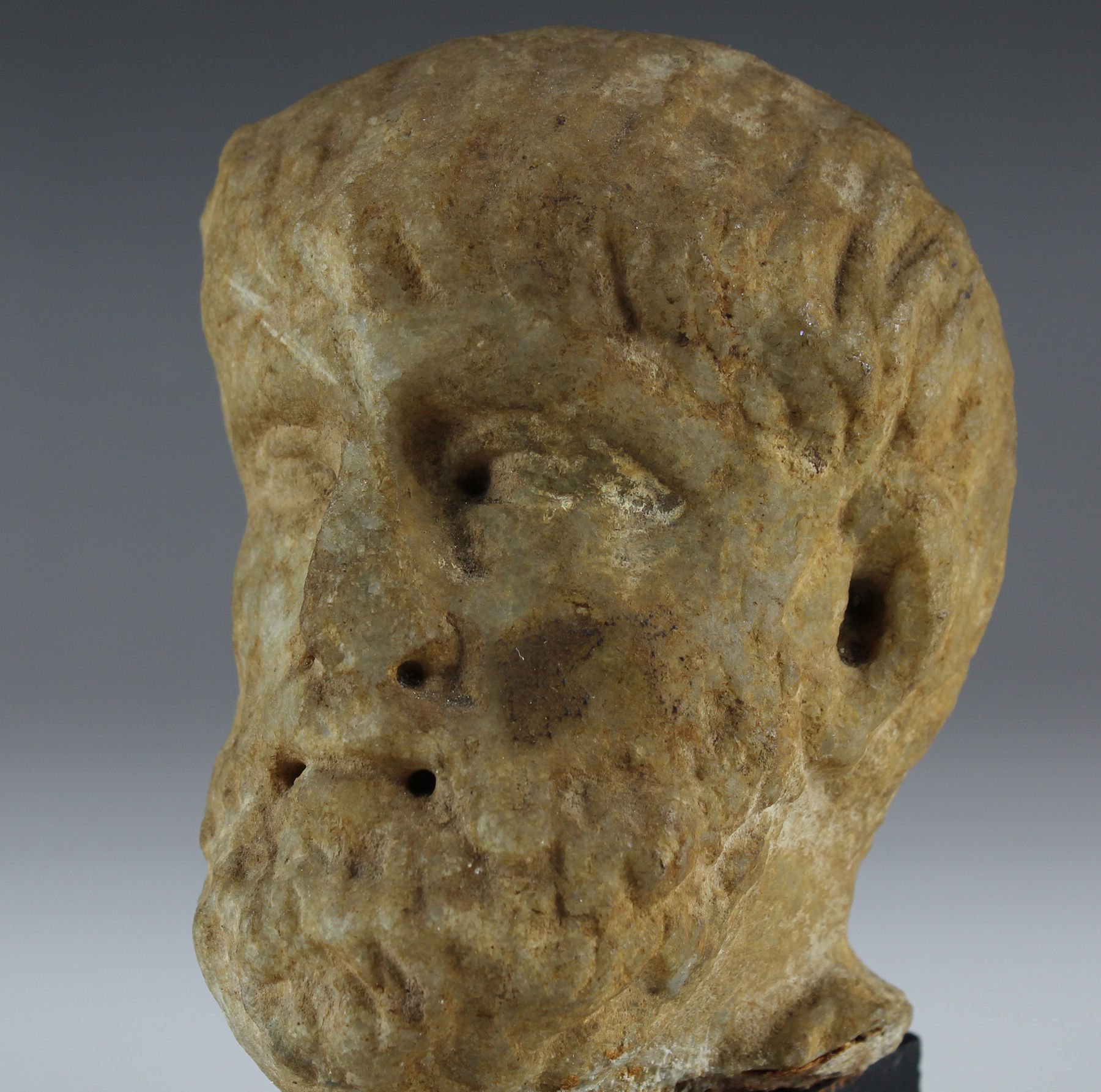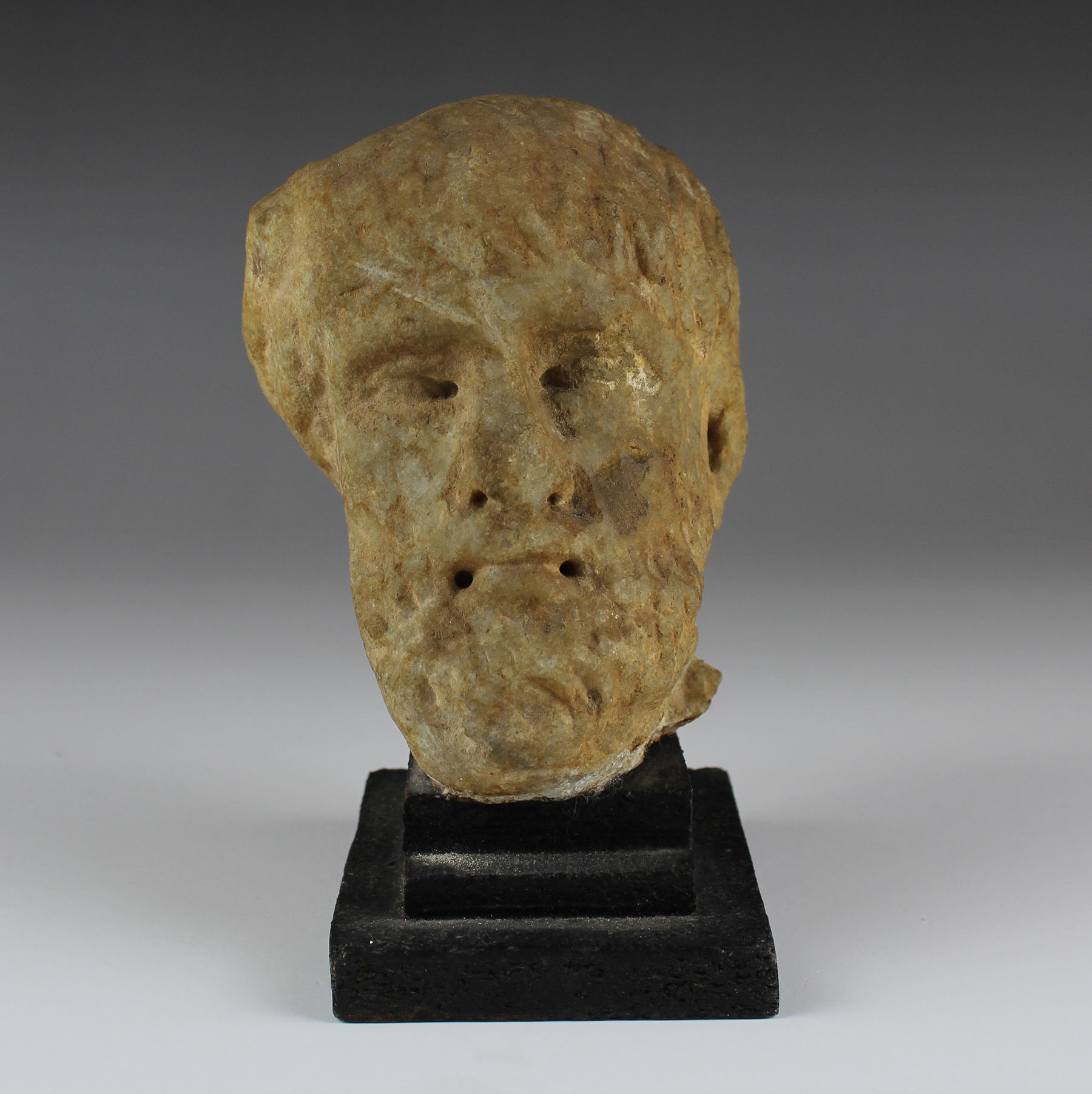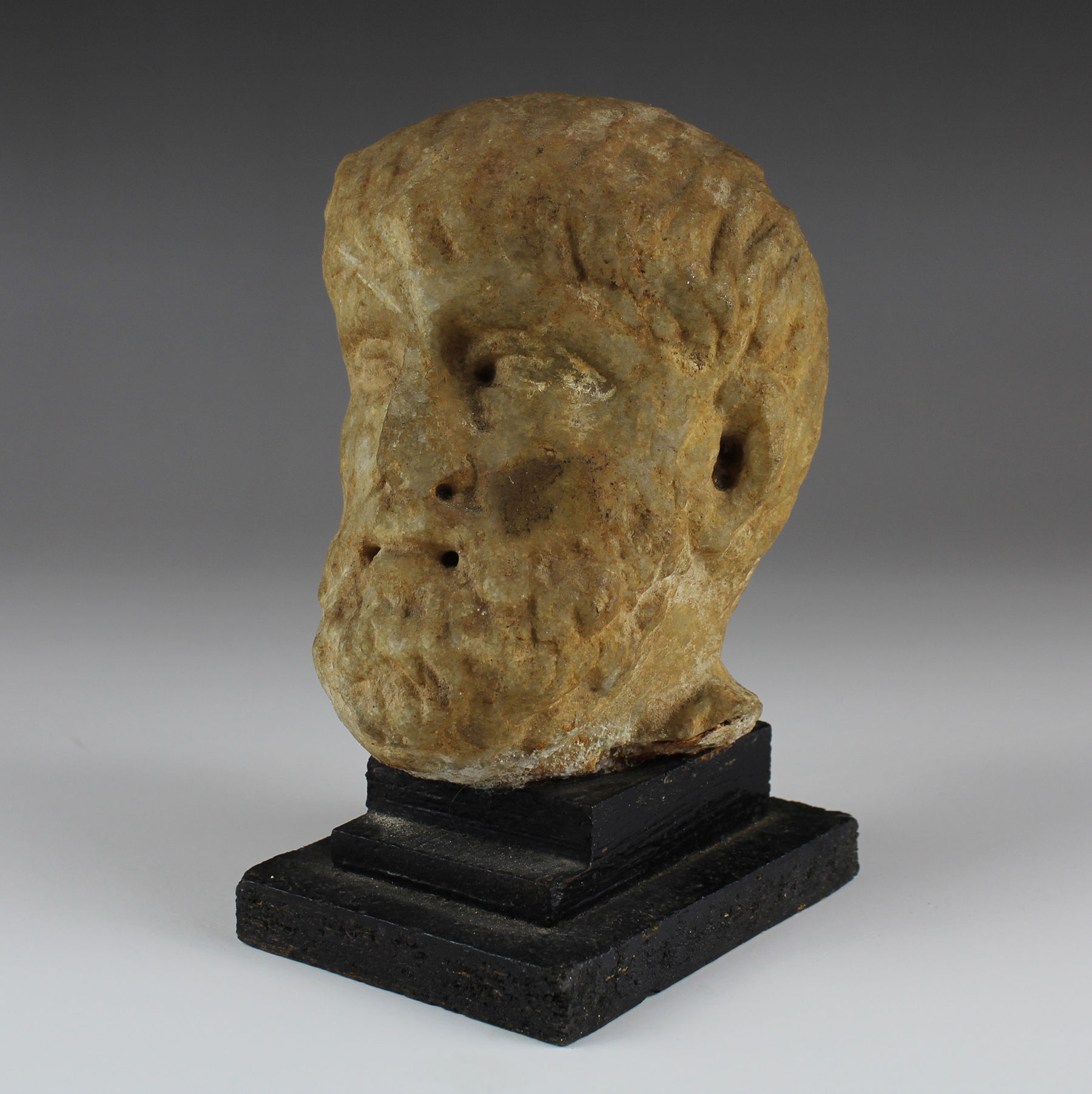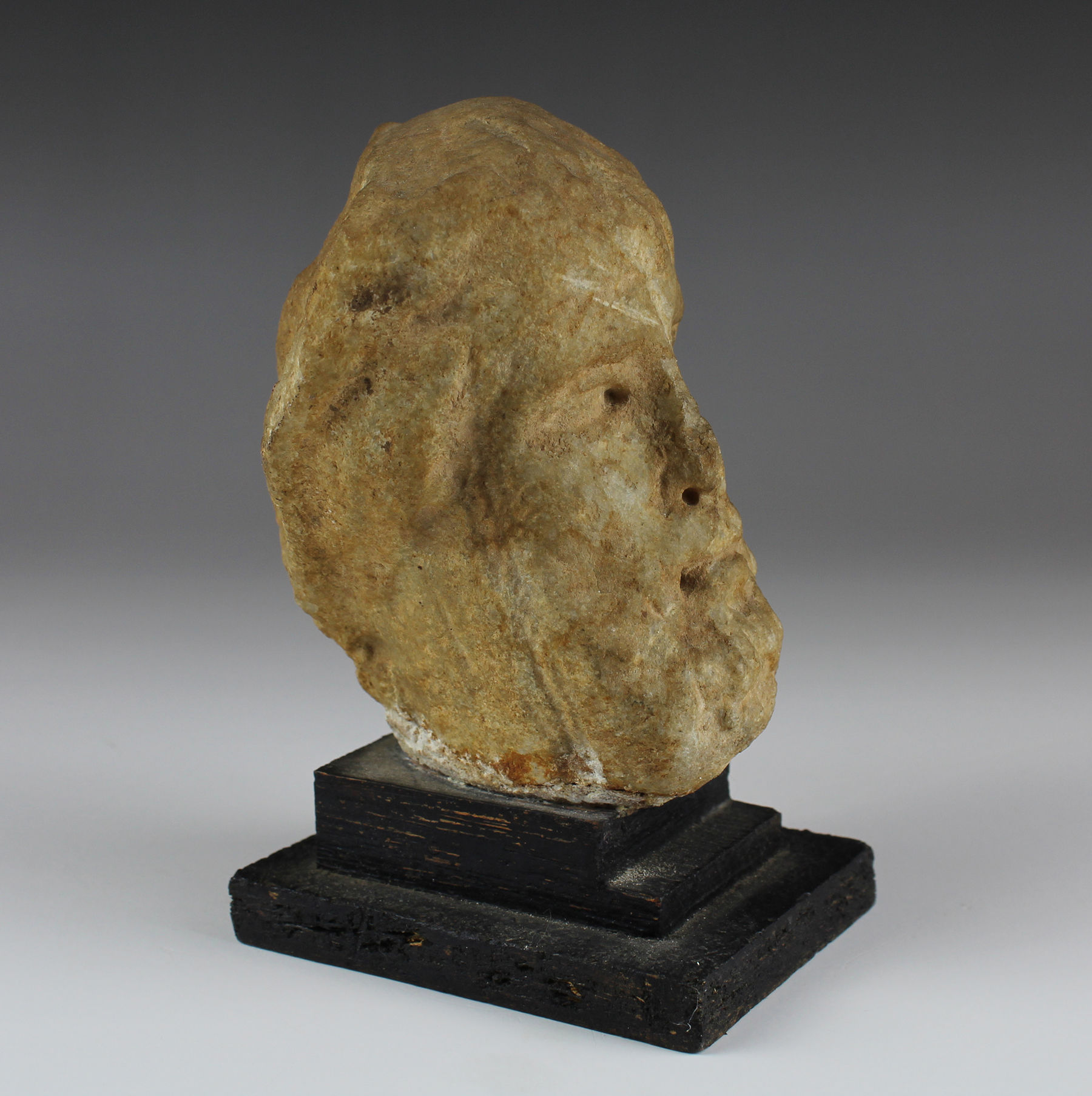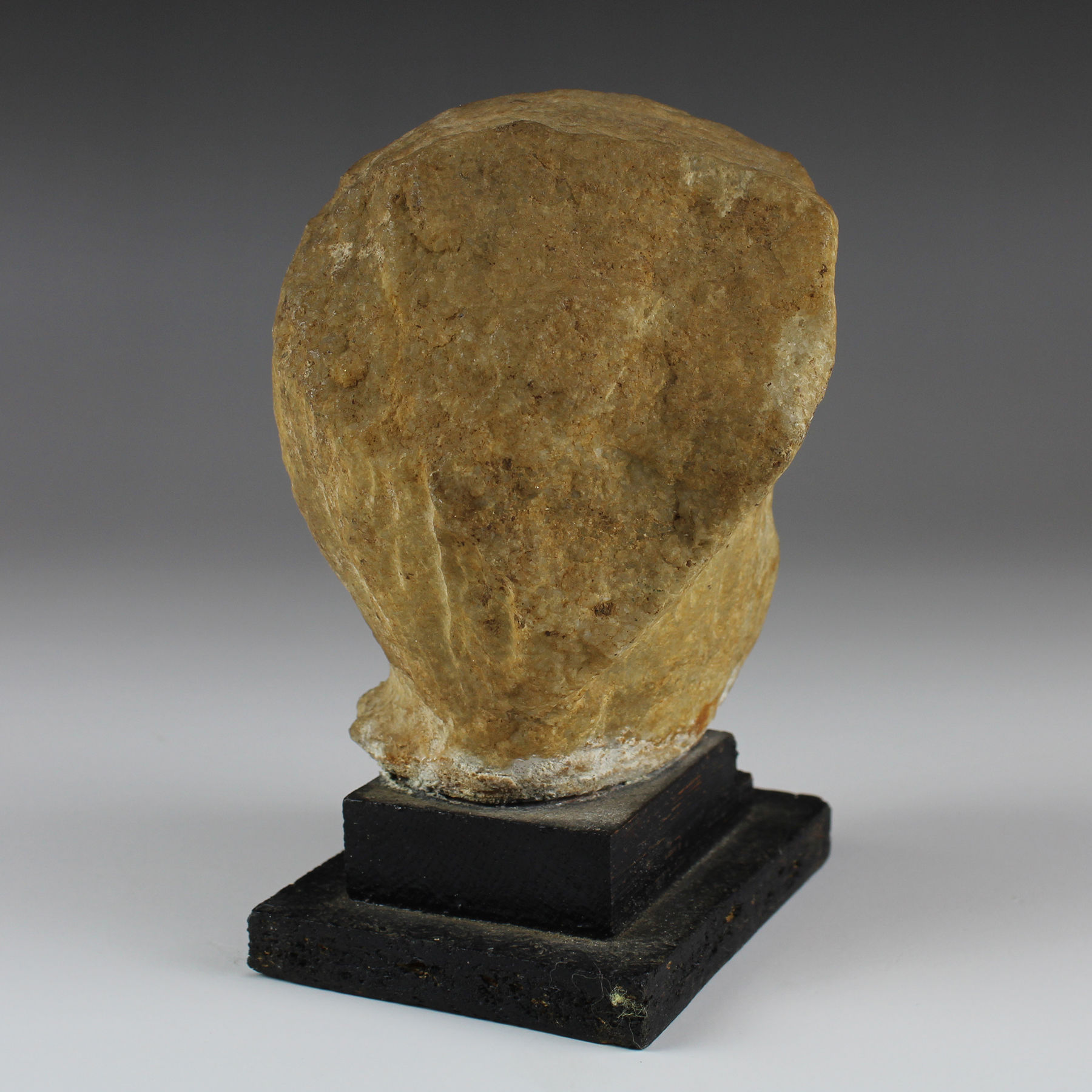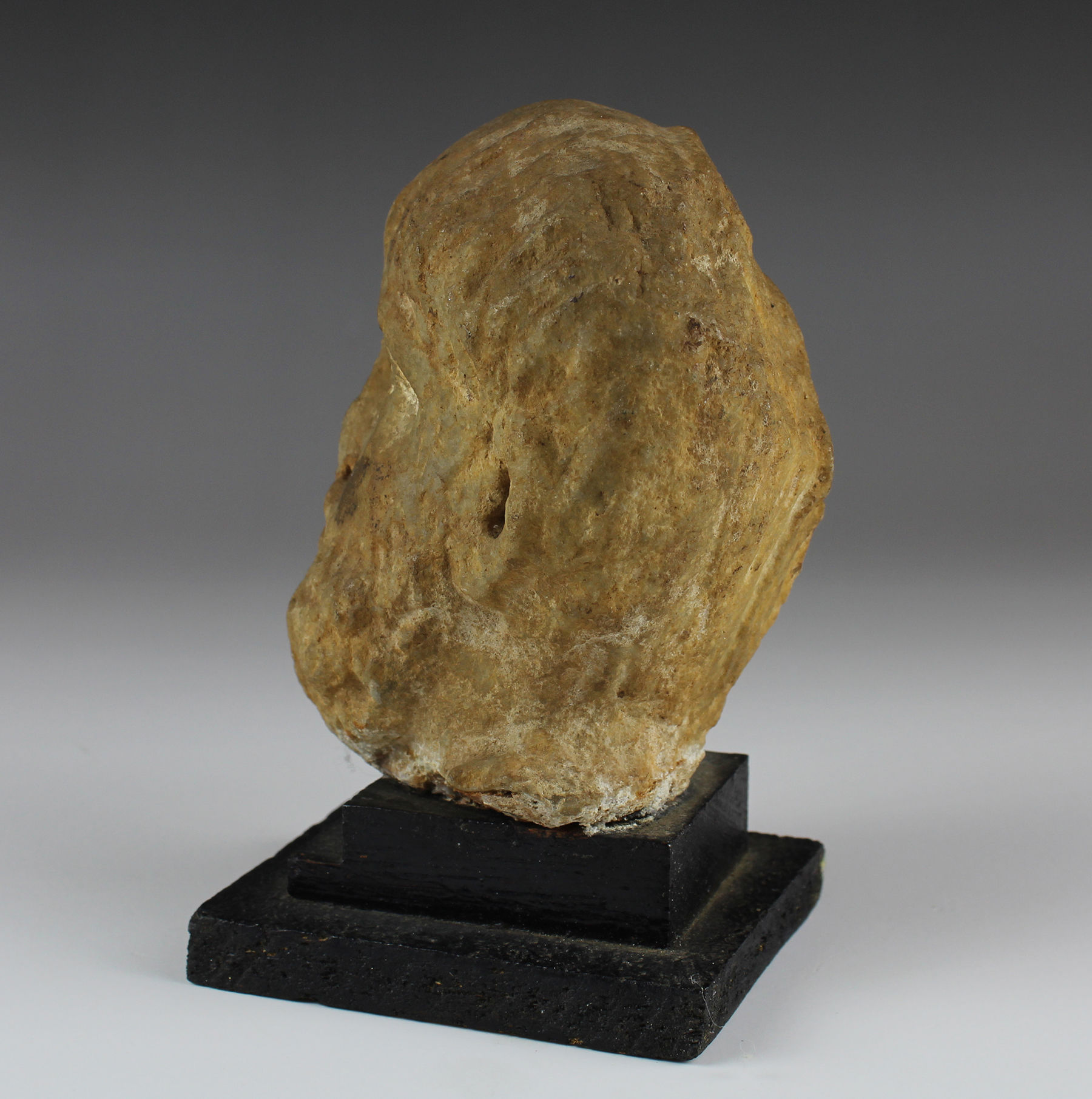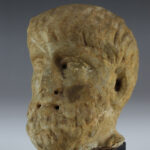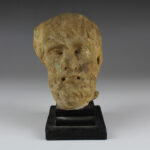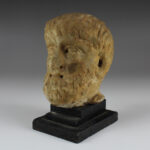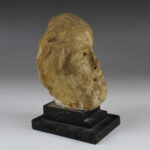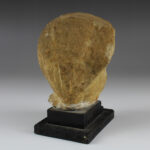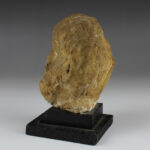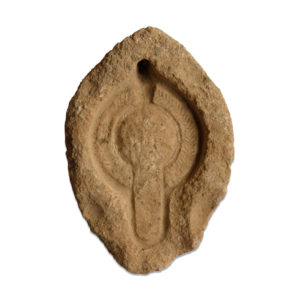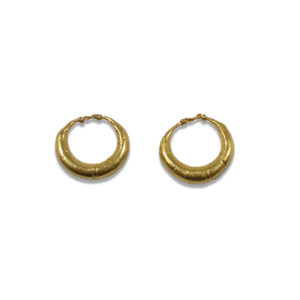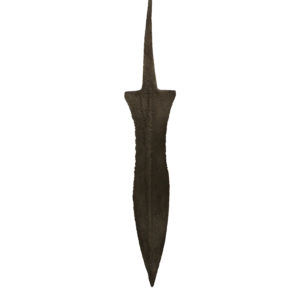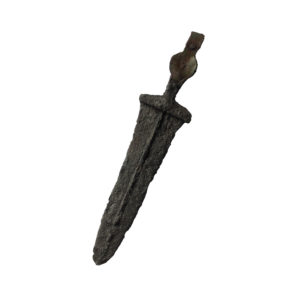Description
| ITEM | Head of a bearded man |
| MATERIAL | Marble |
| CULTURE | Roman |
| PERIOD | 2nd Century A.D |
| DIMENSIONS | 100 mm x 70 mm x 70 mm without stand |
| CONDITION | Good condition, stand included |
| PROVENANCE | Ex private collection, Bergen, Norway, acquired between 1960 – 1980 |
After the long Flavian period (and even that of Trajan, the first emperor of the new dynasty), portrait sculpture underwent a major change with Hadrian.
He introduced the beard (worked with a trephine), which would be maintained by his successors (the Antonine dynasty, such as Marcus Aurelius and Commodus), and a greater idealisation of the portrait.
Rome makes its most characteristic contribution to the tradition founded by the Greeks, a contribution that matured much earlier than in other types of sculpture and which caused the development of sculpture in Rome to be divided into two fields, with different patterns of evolution, portraiture and the other types. From the time of the Republic, portraiture was highly valued and over time it oscillated cyclically between an idealising classicist tendency and one of great realism, derived in part from the expressiveness typical of Hellenistic art.


